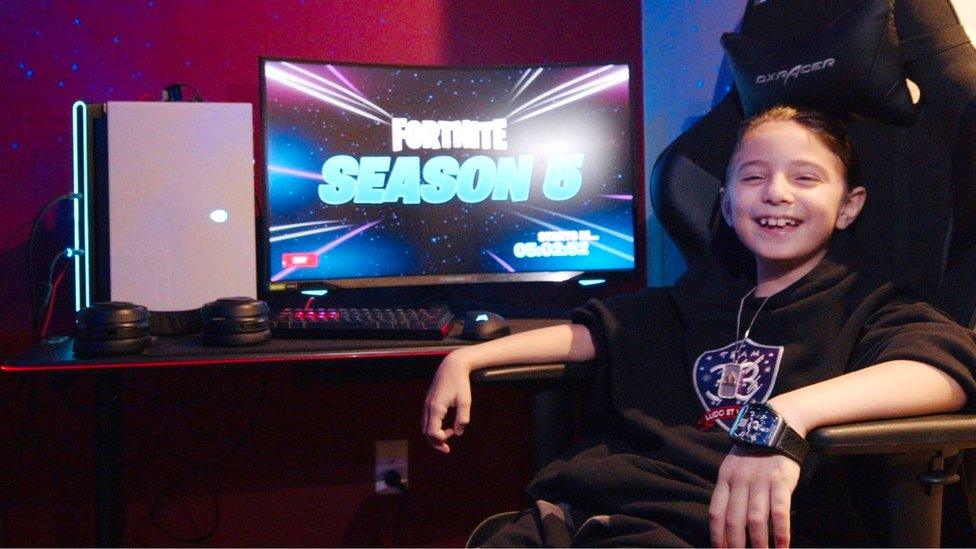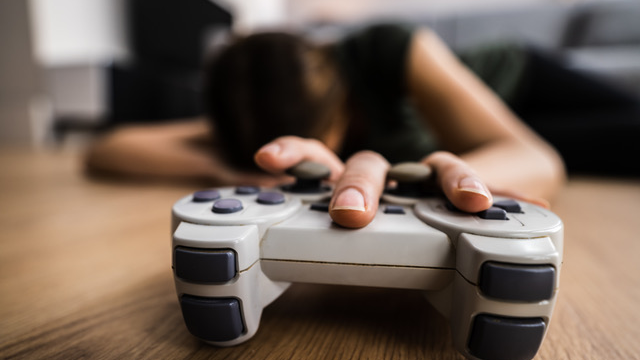Children stopped sleeping and eating to play Fortnite - lawsuit
- Published

Fortnite has become one of the most lucrative game franchises in the world by selling character "skins"
A Canadian judge has approved a class-action lawsuit brought by three parents who say their children became addicted to the video game Fortnite.
The plaintiffs say their children would forgo sleeping, eating and showering because they were hooked on the game.
In court filings, they noted that the World Health Organization recognised video-game addiction in 2018.
The lawsuit is against the game's maker, Epic Games, and its Canadian subsidiary.
In a statement, Epic Games said it had "industry-leading parental controls that empower parents to supervise their child's digital experience".
"Parents can receive playtime reports that track the amount of time their child plays each week, and require parental permission before purchases are made," the company said.
"We plan to fight this in court. We believe the evidence will show that this case is meritless," it added.
The popular online game has amassed more than 350 million players online.
While the game is free to play, players pay to use in-game money called "V Bucks". The game has reportedly made more than $9bn (£7.3bn) worldwide.
One of the children cited in the lawsuit played over 7,700 hours of the game in less than two years.
Millions enjoy gaming but for a few it can lead to addiction
The legal action claims the game was deliberately developed to be "highly addictive".
Quebec Superior Court Justice Sylvain Lussier ruled the lawsuit was not "frivolous".
He likened current understanding of video-game addiction to early awareness of tobacco addiction: "The harmful effect of tobacco was not recognised or admitted overnight."
He ruled that players who live in Quebec and experienced symptoms of addiction after playing the Battle Royale edition of Fortnite since 1 September 2017 can join the legal action.
Related topics
- Published10 November 2021

- Published2 March 2021

- Published3 May 2021

- Published22 December 2021

- Published24 March 2022
